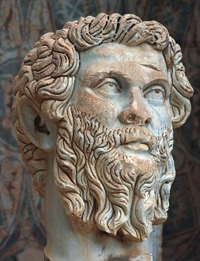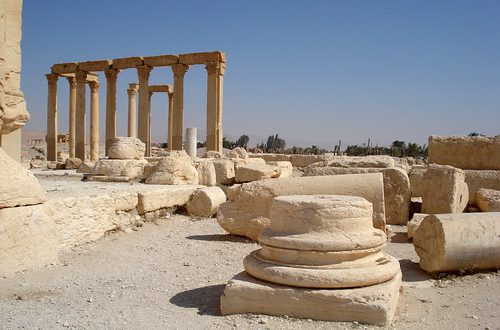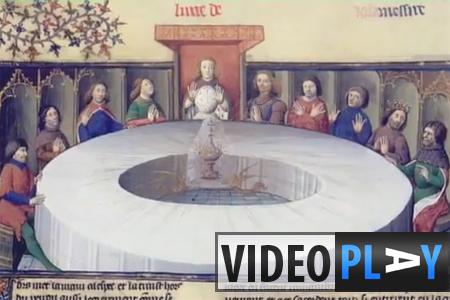 The literary world is waiting for a bombshell. Controversial Da Vinci Code author Dan Brown is about to release his latest historical fantasy tale – The Lost Symbol – on the public. But what does this mean for the history books industry at large, and should the work of Dan Brown be considered historical fiction at all, or merely fantasy?
The literary world is waiting for a bombshell. Controversial Da Vinci Code author Dan Brown is about to release his latest historical fantasy tale – The Lost Symbol – on the public. But what does this mean for the history books industry at large, and should the work of Dan Brown be considered historical fiction at all, or merely fantasy?
Judging by the healthy state of historical fiction at the moment, it could be that history pulp has helped stimulate readers’ and writers’ interest in proper historical fiction. In his review of Ben Kanes The Forgotten Legion, Roger Michael Kean points out that Rome is a popular backdrop for novels at the moment. Aside from Ben Kane, Harry Sidebottoms Warrior of Rome series, RS Downies Ruso, and Simon Scarrows epics are all selling off the back of the Roman Empire.
Then theres The Eagle of the Ninth, Rosemary Sutcliffs childrens classic. Set in Roman Britain, its now finding a new audience thanks in no small part to its forthcoming big-screen adaptations.
But its not just Rome ancient Egypt is becoming a popular backdrop for fiction. Nick Drake is there with books on Tutankhamun and Nefertiti, while the prolific Michele Moran keeps popping up too. Most recently, she boldly refused to move the September 15 American launch date of Cleopatras Daughter, despite it clashing with the release of The Lost Symbol the long-awaited follow-up to The Da Vinci Code.
Taking On Dan Brown
Morans American publisher, Crown Publishing, was understandably nervous. “There’s major apprehension about Michelle’s book going up head-to-head against Dan Brown,” Gaylene Murphy, a spokesperson for the publisher, told the Los Angeles Daily News. “In the publishing industry, they’re calling Sept. 15 D-Day, for Dan Brown, who’s not just a best-selling author he’s a phenomenon.”
Some 6.5 million first edition copies of The Lost Symbol were released Random Houses biggest ever first print run. This follows the phenomenal success of The Da Vinci Code, which sold an astounding 81 million copies worldwide making it the biggest selling historical fiction book of all time.
Or was it? Exactly how historically accurate must a work of fiction be before it moves from fiction to historical fiction?
Historical Fiction or Fantasy?
If The Da Vinci Code broke records for sales, it also broke records for causing controversy. The book follows Browns lead character, Robert Langdon, as he works to solve a murder in the Louvre. In the course of his investigations, the book raises numerous questions relating to Christian beliefs, most notably it questions Mary Magdalenes role and status in the church, and raises the possibility of Mary having married Jesus and giving birth to his child.
 But it doesnt stop there. The book also claims that the Olympics were originally a tribute to Aphrodite, when in fact it is generally accepted that they were in honour of Zeus and Pelops. Then there are complaints about Browns poor use of French, his lack of research on astronomy, and issues relating to witches, engineering and the Holy Grail. There is a comprehensive overview here.
But it doesnt stop there. The book also claims that the Olympics were originally a tribute to Aphrodite, when in fact it is generally accepted that they were in honour of Zeus and Pelops. Then there are complaints about Browns poor use of French, his lack of research on astronomy, and issues relating to witches, engineering and the Holy Grail. There is a comprehensive overview here.
In fact, refuting Dan Brown has become a literary genre in itself!Marcia Ford lists a selection of books that argue there is nothing historically worthy at all about Browns first book. Ford writes:
Regardless of whether you agree with Brown’s conclusions, it’s clear that his history is largely fanciful, which means he and his publisher have violated a long-held if unspoken agreement with the reader: Fiction that purports to present historical facts should be researched as carefully as a non-fiction book would be.
Calling In The Big Guns
So its to the Historical Novel Society that we go in search of a definition of historical fiction. And this is what we find:
There are problems with defining historical novels, as with defining any genre. When does ‘contemporary’ end, and ‘historical’ begin? What about novels that are part historical, part contemporary? And how much distortion of history will we allow before a book becomes more fantasy than historical?
There will never be a satisfactory answer to these questions, but these are the arbitrary decisions we’ve made.
To be deemed historical (in our sense), a novel must have been written at least fifty years after the events described, or have been written by someone who was not alive at the time of those events (who therefore approaches them only by research).
“We also consider the following styles of novel to be historical fiction for our purposes: alternate histories (e.g. Robert Harris’ Fatherland), pseudo-histories (eg. Umberto Eco’s Island of the Day Before), time-slip novels (e.g. Barbara Erskine’s Lady of Hay), historical fantasies (eg. Bernard Cornwell’s King Arthur trilogy) and multiple-time novels (e.g. Michael Cunningham’s The Hours).
Which, by this definition, makes The Da Vinci Code a work of historical fiction just a poorly written and researched one that’s sold millions of copies and made Dan Brown one of the most famous people on the planet.



